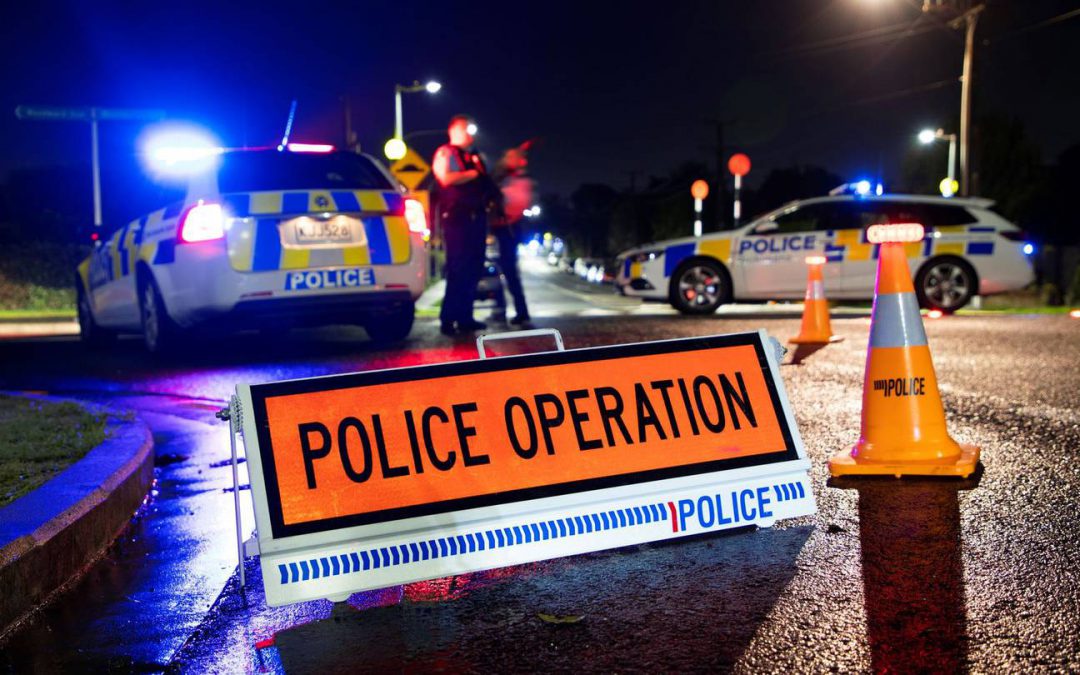On the back of one of my recent articles, I found myself in a well-intentioned argument about the state of affairs in this part of the world. My tormenter was a good mate who was challenging some of my views. The discussion was friendly and sporting. It was actually good fun.
And it got me thinking.
It got me thinking about the core needs of a good and decent society.
And it got me thinking about what’s really important beyond the most basic food, shelter and clothing as defined by Maslow’s hierarchy. It prompted me to ask the question: what constitutes a good and decent society?
So I scribbled down a few ideas. The list quickly grew to the point that a page was filled reasonably quickly. After a bit of self-interrogation, I concluded that the “top 10” necessities for a decent society probably lie in the following things:
At the top of my list is law and order. A decent society must provide citizens with an environment where they feel safe and they can go about their daily lives without fear of incident or accident. If such an event occurs, we want to know we can turn to a highly responsive and compassionate police force, who in turn are served by a judiciary that operates a fair and truthful process in a reasonable timeframe, thus ensuring a just outcome for all concerned.
Next up, access to quality healthcare. It was the first thing I wrote down. I suspect it’s top of mind because it’s so topical in this country at the moment. My generation has taken such access for granted for most of our lives. However, the system has been slowly crumbling for a long time now and it has taken a pandemic to bring it all out in the open.
It now seems acceptable to have patients waiting hours for medical attention in the hallways of emergency departments.
In some cases we hear of patients waiting in a tent outside an emergency department or hospital entrance. Ambulances, it seems, are now a luxury.
Depending on who you listen to, we are short of medical personnel, our hospitals are overwhelmed, and Covid and the flu season have decimated the little resilience that once existed in the system.
I’m not sure where education should rate on a list like this. If we get education right up front, a lot of potential problems go away. The two issues highlighted above will diminish in a well-educated society. What I do know is that good education is a critical element of a good society. We need to get kids into school, keep them in school, and have them leaving secondary school as young adults who are able to fully function in the community.
Equality is a topic that has been debated for the ages the world over. One thing is for certain: it’s critical in a good and healthy society. In regimes around the world where equality and democracy have been compromised, failure of the state is a constant and certain outcome.
All people should be treated equally. Every person should be entitled to one vote. Everyone should be entitled to a good education, and be encouraged and supported in the development of skills that enable a career. Imagine a society where everyone is able to, and does contribute. As workers, as taxpayers, as engaged voters, and as mentors and leaders for the generations that follow.
At number five I have placed political integrity and transparency. Sometimes you don’t appreciate what you once had until it is gone. A good society requires well-qualified and capable people as leaders, and a well-intentioned and honest bureaucracy supporting them. Government is at its best when it doesn’t dominate our lives or the headlines. Good government should also be right-sized and fit for purpose.
Good government is when the water-cooler conversations are about the weekend sports results or the holiday you just had. If that conversation is constantly about the performance or failures of our local and national politicians and the governing organisations they represent, we have a problem.
Trade is a critical ingredient of a good society. People need access to goods and services. Trade enables necessities and luxuries alike to be delivered to the people who demand them. Trade also creates the economy. An economy where a small community or a large nation can earn its keep. Creating income and creating jobs. Trade is pivotal to economic wellbeing and success.
At the most basic level, trade creates opportunity for a community to gather and grow. Relationships are often built around the trading of goods and services, and those relationships pave the way for new opportunities and new communities.
Every person in a good society needs access to transportation. In this sense, access means a number of things. First, transport has to be available. Whether you travel by car, bus, plane or even boat, the ability to do so is first and foremost.

Thereafter, that transport must be affordable. Without affordability, the benefits of access can be lost. Finally, as every person has different transport needs, it must be multi-faceted, timely and flexible. Transport enables people to move around for education, jobs and sports. Transport enables trade to occur and relationships to be built.
At number eight, good economic management and a fair tax structure are critically important. We expect that the elected leaders of our society will manage our collective affairs in a manner that is sustainable and responsible. We want to achieve good terms for our trade and positive outcomes for our people. We want to ensure that critical portfolios, including those such as policing, health and education above, are appropriately funded. We need to ensure that the taxes paid to support such services are borne fairly by the community that benefits from them. We want the recipients of those taxes to be responsible with our money, and where necessary to incur debt in a manner that is appropriate and sustainable.
Regardless of our success or failure, we must ensure that our good society makes a special effort to look after those who can’t help themselves. This is a critical function of decency. The aged, the mentally ill, the physically damaged, the abandoned babies, the maltreated and the victims of violence.
However they came to be where they are, we need to be able to help them in a manner that is efficient, caring and timely.
Somebody once said “you can judge a nation by how it treats its most vulnerable”. That’s not a bad rule to live by. But it must be done properly and respectfully. And in most civilised societies today it’s an enormous job that requires highly qualified people, world-class facilities and appropriate financial resources.
Finally, but most importantly, my number 10. A decent society must have a strong, independent and reliable media. Everywhere we look today, there are messages that seek to influence our thoughts and opinions. By the time we get to work each day we have seen at least 100 messages. Many of those communications have come through social media, a source not known for its accuracy.
Other bulletins come in the form of paid ads targeting you and the chance to influence your opinion.
Such an environment requires certain sources of information, particularly news and current affairs, to be well-informed, factual and utterly reliable. Both locally and internationally, there are many media sources that do not provide that level of comfort. There are a few that do. But good media needs to find its pedestal once more and in-depth investigative journalism, no matter how uncomfortable it leaves us, must be celebrated.
In conclusion, I acknowledge that this list is not perfect. There are other areas that could, or perhaps should, be included. This is, after all, the opinion of one person.
But even if there are other factors more worthwhile, there’s an interesting aspect to this catalogue of expectations.
That is, that our society here in New Zealand is under-performing on every front mentioned above. We’ve always considered ourselves a decent society, and rightly so. But we’re struggling to maintain that position.
Our current crime wave now extends from youth-led ram raids to gun violence fuelled by gang tensions that are new to us.
A report out this week surveyed 900 doctors, of whom some 93.5 per cent believe the health system is in crisis. Cancer treatments are cancelled on a daily basis. Staff shortages are critical.
For some reason we continue to delay the invitation to bring professionals in from overseas. Recent retirees who are prepared to re-join the workforce in our “hour of need” are shunned.
Our schools have truancy rates of 40 per cent-plus, and more than a third of 15-year-olds are struggling to read and write.
That means they won’t be able to function in the society we need them to contribute to.
Equality is now being openly challenged and some politicians are suggesting democracy needs to be “redefined”. The promise of political transparency lies in tatters.
The list goes on. The reality is that every aspect of a good and decent society mentioned above reflects an area that requires serious improvement in our special little country. We are sliding, but the slide is reversible.
I acknowledge that this is merely a list of issues with little in the way of solutions.
However, it can also be read as a list of aspirations or priorities. Aspirations to do better across a variety of areas where we’re not doing well. A shopping list for our future leaders if you like. Would you rather spend a billion dollars on climate change, or three new hospitals?
Finally, there is one more thing a good society needs as much as anything else. It’s another area where we’ve been underperforming. Every society needs a national sporting team that wins. We need that tonight.
This article first appeared in the New Zealand Herald on Saturday 16 July 2022.

Recent Comments